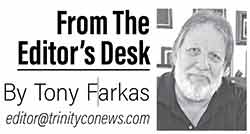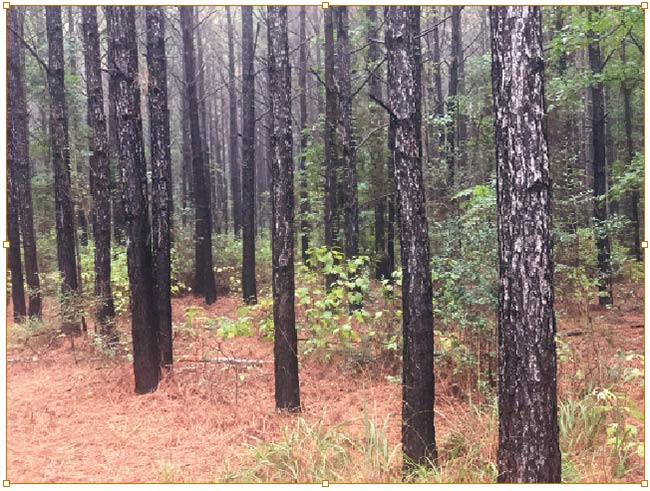That’s the result of too large of a bite
 Last week, we discussed the efficacy of New Year’s resolutions, and maybe trying to change something useful (although at my girth, changing my weight would be very useful).
Last week, we discussed the efficacy of New Year’s resolutions, and maybe trying to change something useful (although at my girth, changing my weight would be very useful).
Seems that a perfect example of that occurred just last week, given that President Biden gave a federal version of “no mas” to the country’s governors regarding the efforts against the coronavirus.
Biden told the governors there was “no federal solution” to the spread of COVID, and that it was essentially up to them to solve the problem. This was a complete 180 from his campaign promises, where he told voters he’s got this.
That, to many of us, was an example of federal overreach, one which we were pretty much sure he couldn’t pull off. I say that because the government couldn’t — and shouldn’t — be involved in health care. That’s not to say it shouldn’t be involved in things like mobilizing people and items, and fast-tracking drugs and such; it doesn’t create anything, and really only serves to make things more expensive.
The national media, of course, opened up the memory hole, and reversed their position on the federal role. (When Trump was in charge, he was a dictator bent on domination. Biden was just helping.)
So what is the upshot here? Has the pandemic become that much less of a problem? Depends on who you ask, but it’s still out there.
Biden, of course, realizes this, because he still hasn’t stopped issuing mandate after edict for vaccinations and masks and whatnot — despite losing ground in the courts and with the national populace.
But to the original point, perhaps instead of pushing ridiculous non-working “remedies” and demanding that people follow the government’s orders, he should have been inspiring cities, counties, states, and the country as a whole to come together.
This has worked before.
Think about World War II. President Roosevelt inspired a nation to come together to fight a common foe, and the people dealt with privation, shortages, even safety mandates (remember the Civil Defense?) that included curfews, bomb shelters, lights-out drills, etc., all designed to win.
Those mandates even flew in the face of the social constructs of the time, what with women headed to the factory floors to produce the items needed for the war effort.
How about the space program? JFK exhorted us to win the space race, and we did, so even if Russia managed to put Gagarin up in space first, we took over and made wonderful things happen.
It also is like all those old adages about honey and vinegar, carrots and sticks and the like. Instead of threatening people with fines, vaccination passports and forced quarantines, appeal to their patriotism, or at least what’s left of it, and give us the reins. As was in the past, people will surprise you, come together, and put a solution together that will appeal to everyone, not just party faithful.
When we come together, we can accomplish great things. If we continue with the current political climate of us and them, we end up nowhere.
Tony Farkas is editor of the Trinity County News-Standard. He can be reached at This email address is being protected from spambots. You need JavaScript enabled to view it..
- Hits: 802


 Early Sunday morning, the day after Christmas, when I read online that Archbishop Desmond Tutu had died, I couldn’t help but feel a little sad. I’d had the opportunity to meet him one spring day in March of 2004 at St. Luke’s Episcopal Church.
Early Sunday morning, the day after Christmas, when I read online that Archbishop Desmond Tutu had died, I couldn’t help but feel a little sad. I’d had the opportunity to meet him one spring day in March of 2004 at St. Luke’s Episcopal Church.